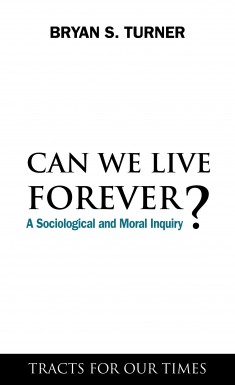- About This Book
- Reviews
- Author Information
- Series
- Table of Contents
- Links
- Podcasts
About This Book
‘Can We Live Forever?’ addresses the modern debate about the Life Extension Project that results from revolutions (actual and predicted) in bio-medicine, transplantation, cosmetic surgery, genetic counseling, stem cell research, cryonics, cloning and so forth that cumulatively promise to deliver eternal life or at least 'prolongevity'. In an engaging and thought-provoking work, the author traces the rise of the Life Extension Project and its claims against an intellectual background of recent analyses of 'waste', sustainable environments and complexity theory.
Although there has been much discussion of increasing life expectancy, this book looks at a range of additional issues: the religious implications of life extension; the psychological consequences, such as ennui; the negative global social and economic factors; the problems of intergenerational justice. The possible benefits and adverse consequences of living forever are fully explored in this illuminating text, offering substance to social scientists working on ageing and demographic change, philosophers interested in questions of continuity and identity, theologians concerned with secular changes in the life course, as well as the general reader.
Reviews
‘The range and depth of Bryan Turner’s writing is of international renown and in ‘Can We Live Forever?’ he attempts to provide both a sociological analysis of life extension and an unpacking of the moral and ethical implications of the technological advances that promise ‘immortality’. […] It makes fascinating reading.’ —‘Sociology of Health & Illness’
Author Information
Bryan S. Turner is the Alona Evans Distinguished Visiting Professor of Sociology at Wellesley College, USA.
Series
Tracts for Our Times
Table of Contents
1. Longevity and the Population Debate; 2. The Social Utopia of Human Perfection; 3. Ancient and Modern Techniques of Longevity; 4. The Political Economy of Ageing; 5. The Moral and Spiritual Character of Old Age; 6. Vulnerability and the Ethic of Care; 7. Towards a New Paradigm of Ageing; 8. The Aesthetics of Ageing; References; Index
Links
Stay Updated
Information
Latest Tweets



